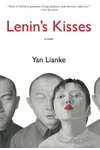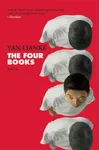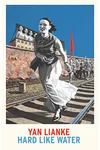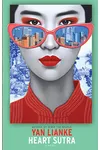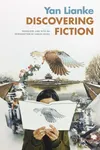Picture a Chinese storyteller who weaves satire, folklore, and stark reality into tales that challenge a nation’s memory—meet Yan Lianke! Born in 1958 in rural Henan Province, this fearless author has penned over 17 novels, countless short stories, and essays that confront China’s turbulent history with a sharp, imaginative edge. Despite censorship at home, Lianke’s mythorealism—a genre he coined—has earned him global acclaim and whispers of Nobel Prize potential.
With a knack for blending humor, absurdity, and heart-wrenching truths, Lianke’s stories don’t just entertain—they provoke. From banned books like Serve the People! to haunting tales like Dream of Ding Village, his work shines a light on the human cost of political upheaval. Ready to dive into a literary world that’s equal parts daring and dazzling? Let’s explore Yan Lianke’s journey!
The Making of Yan Lianke
Growing up in poverty in Song County, Henan, Yan Lianke’s early life was shaped by the struggles of a peasant family. With no means for university, he joined the Chinese People’s Liberation Army at 20, where he honed his craft as a propaganda writer. His passion for storytelling led him to Henan University, earning a degree in politics and education in 1985, followed by a literature degree from the PLA Art Institute in 1991. Inspired by 19th-century classics like Gone with the Wind and Anna Karenina, Lianke published his first short story in 1979, setting the stage for a prolific career.
Yan Lianke’s Unforgettable Stories
Lianke’s early works embraced 19th-century realism, but by the late 1990s, his style evolved into what he calls mythorealism—a surreal blend of folklore, satire, and allegory that captures China’s hidden truths. His Balou Mountain Series, including Lenin’s Kisses and Hard Like Water, paints a vivid, absurd portrait of rural life, often set in the fictional Balou Mountains. Lenin’s Kisses (2004) follows a village of disabled residents exploited by a scheming official, earning international praise for its biting humor.
Dream of Ding Village (2006) tackles the AIDS crisis in Henan, exposing the devastating blood trade with heartbreaking clarity. Banned in China, it became a global sensation. The Four Books (2011) confronts the Great Famine, weaving a tragic yet fantastical narrative that was rejected by mainland publishers but lauded abroad. The Day the Sun Died (2015) uses a dreamlike lens to critique modern Chinese society, showcasing Lianke’s ability to balance the surreal with the profound.
His writing, often banned for its political edge, dances between magic and reality, earning comparisons to Kafka and García Márquez. Lianke’s essays, like those in Sound and Silence, reflect on censorship and memory, cementing his role as a literary provocateur who challenges both readers and regimes.
Why Yan Lianke Matters
Yan Lianke’s fearless storytelling has redefined Chinese literature, giving voice to the marginalized and exposing the absurdities of power. His works, translated into over 30 languages, resonate globally, earning him the Franz Kafka Prize, Newman Prize for Chinese Literature, and multiple Man Booker International nominations. Often tipped as a Nobel contender, Lianke’s mythorealism offers a uniquely Eastern lens on universal human struggles, inspiring writers and readers to confront uncomfortable truths with courage and creativity.
Despite bans and controversy, Lianke remains a beacon of artistic independence, proving that literature can illuminate even the darkest corners of history. His influence extends beyond China, shaping global conversations about freedom, memory, and the power of storytelling.
- Born: 1958, Song County, Henan, China
- Key Works: Lenin’s Kisses, Dream of Ding Village, The Four Books, The Day the Sun Died
- Awards: Franz Kafka Prize (2014), Newman Prize for Chinese Literature (2021), Lu Xun Literary Prize
- Fun Fact: Lianke coined the term mythorealism to describe his unique blend of satire and surrealism.
Snag Dream of Ding Village or Lenin’s Kisses and dive into Yan Lianke’s bold, unforgettable world of mythorealism!
